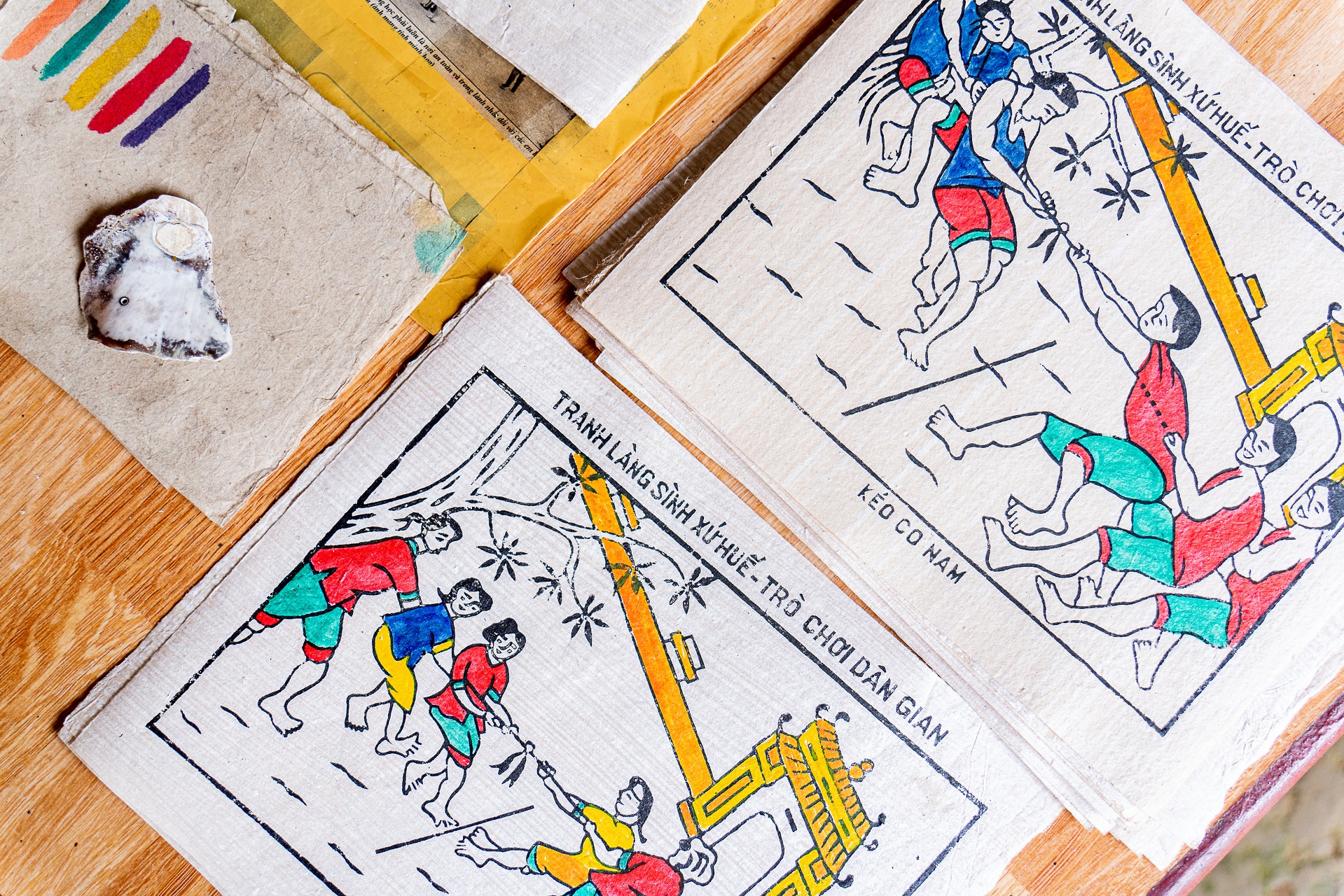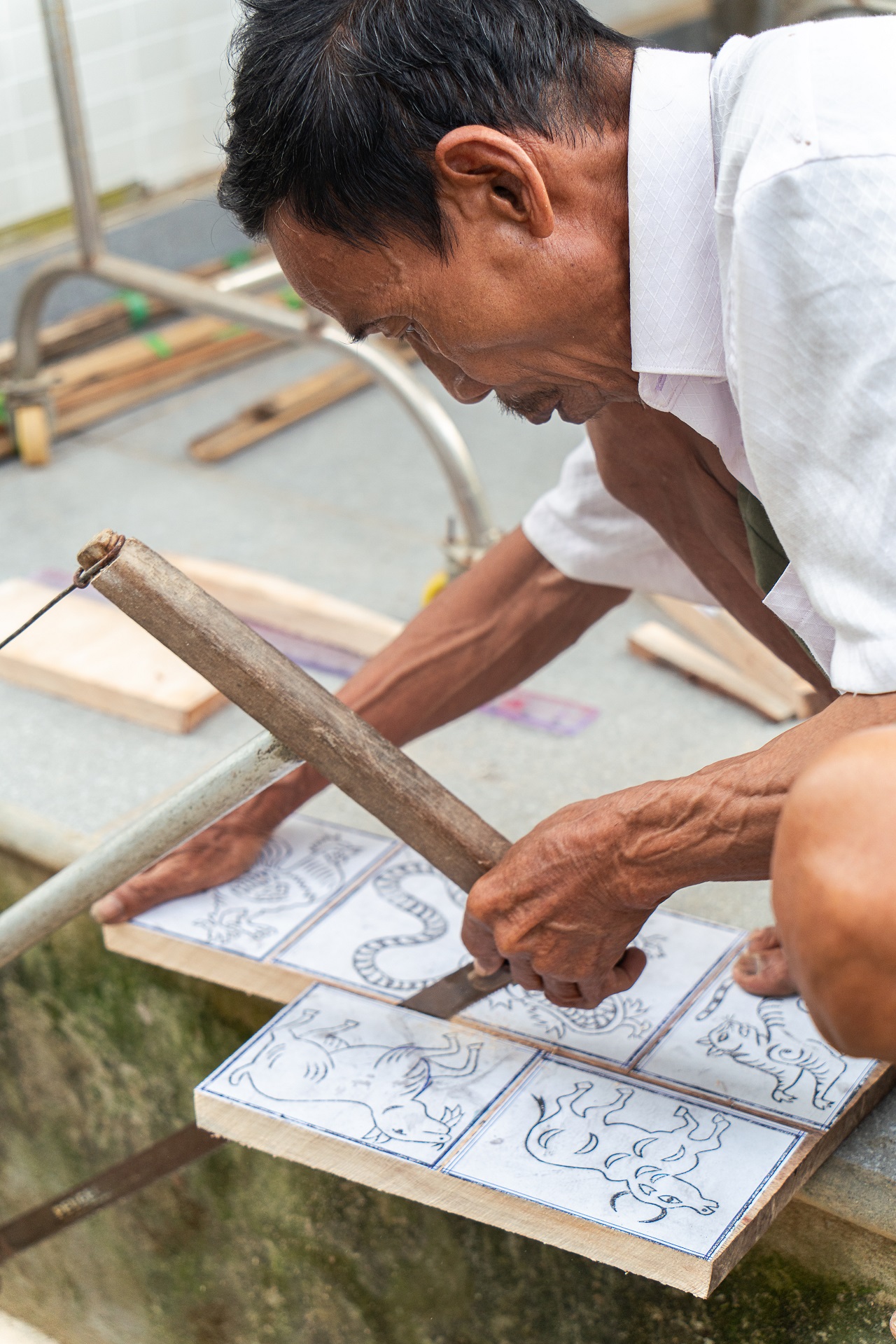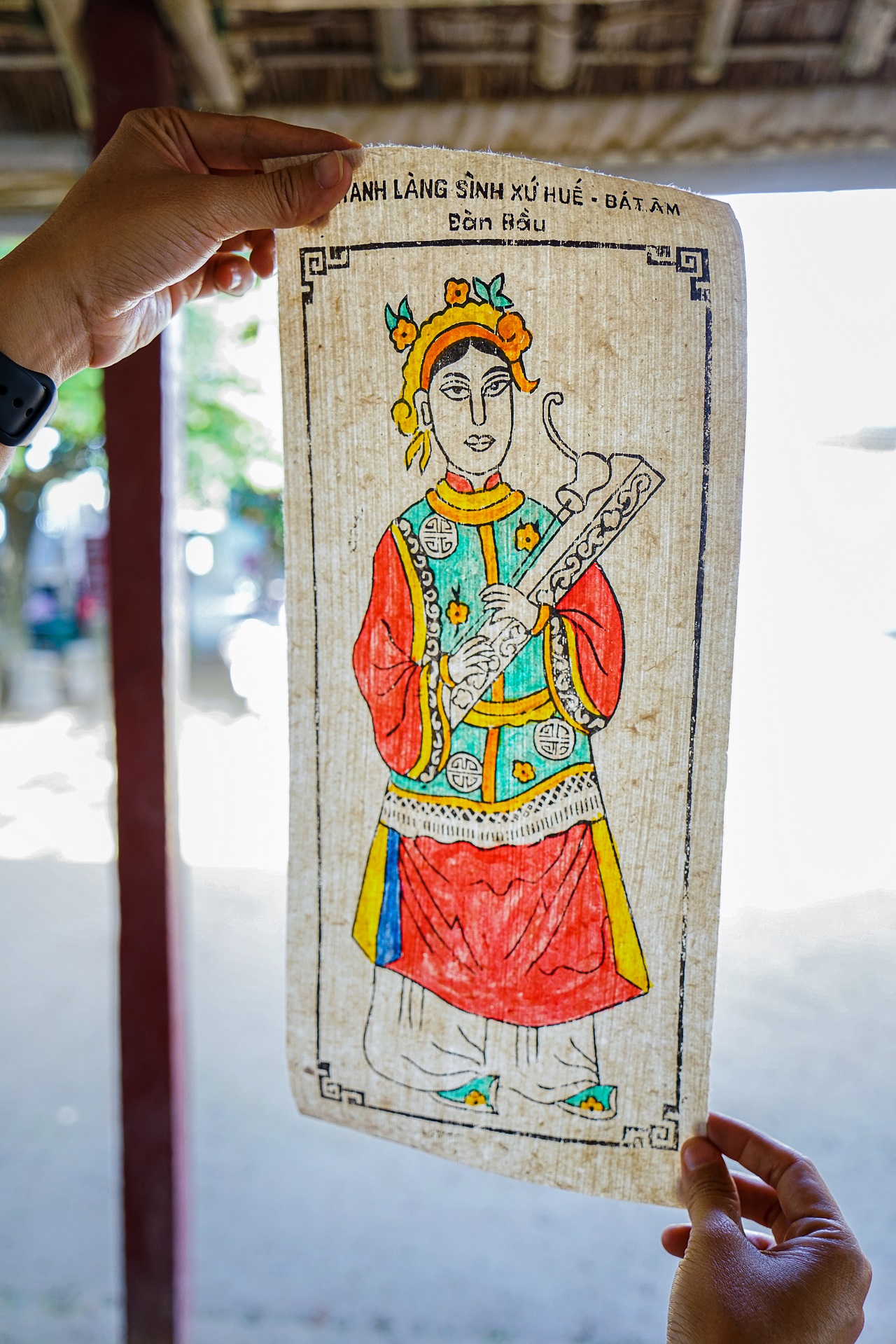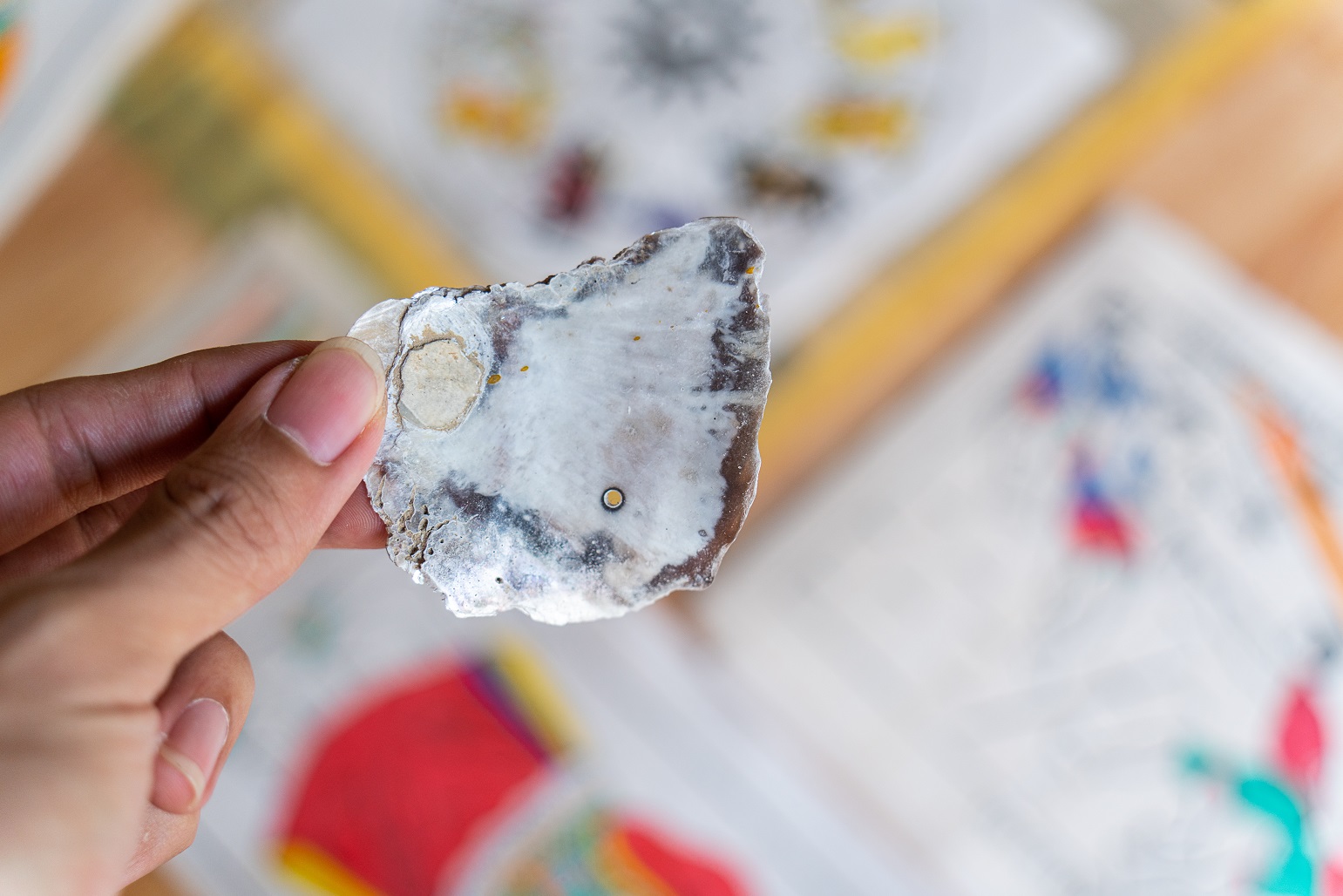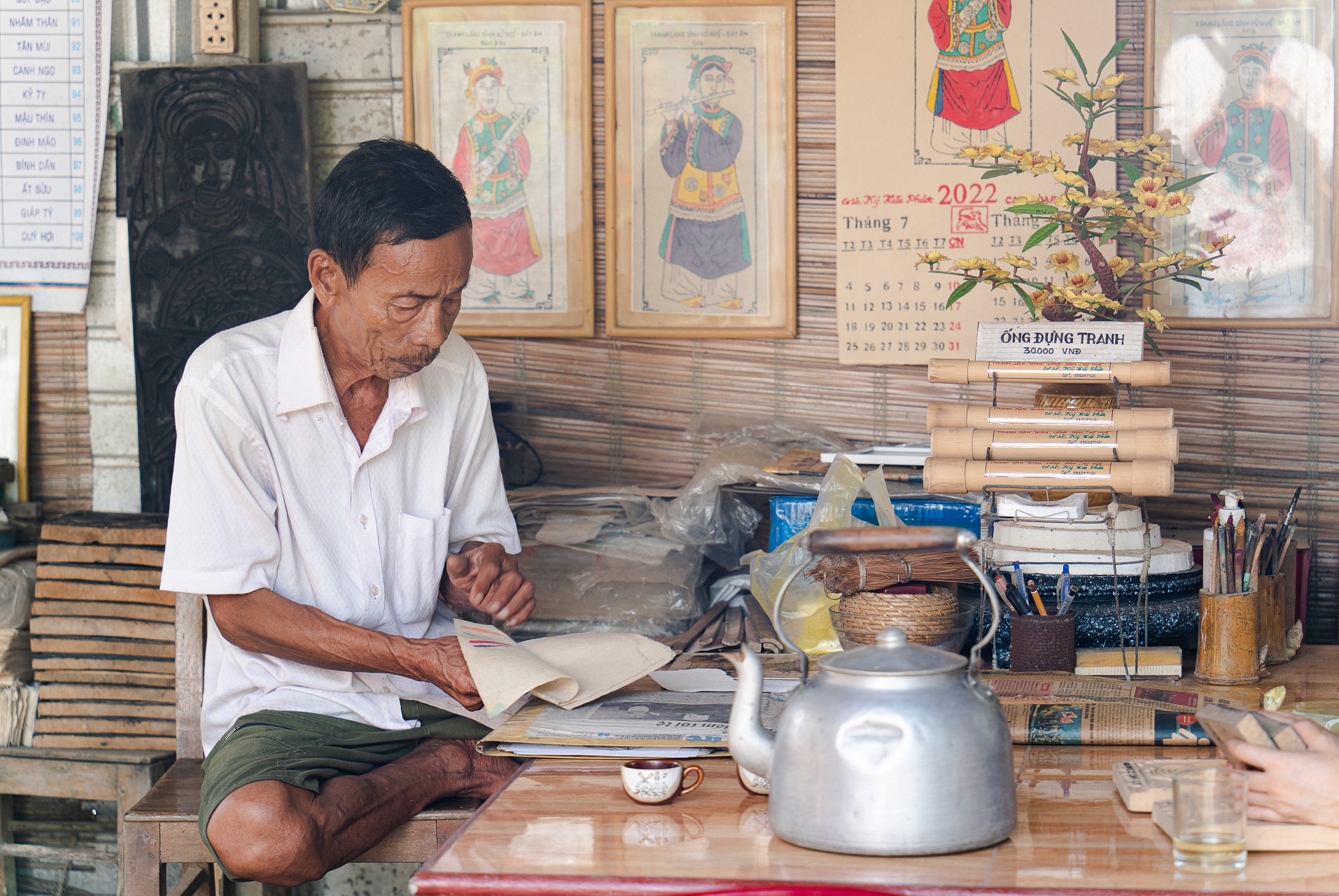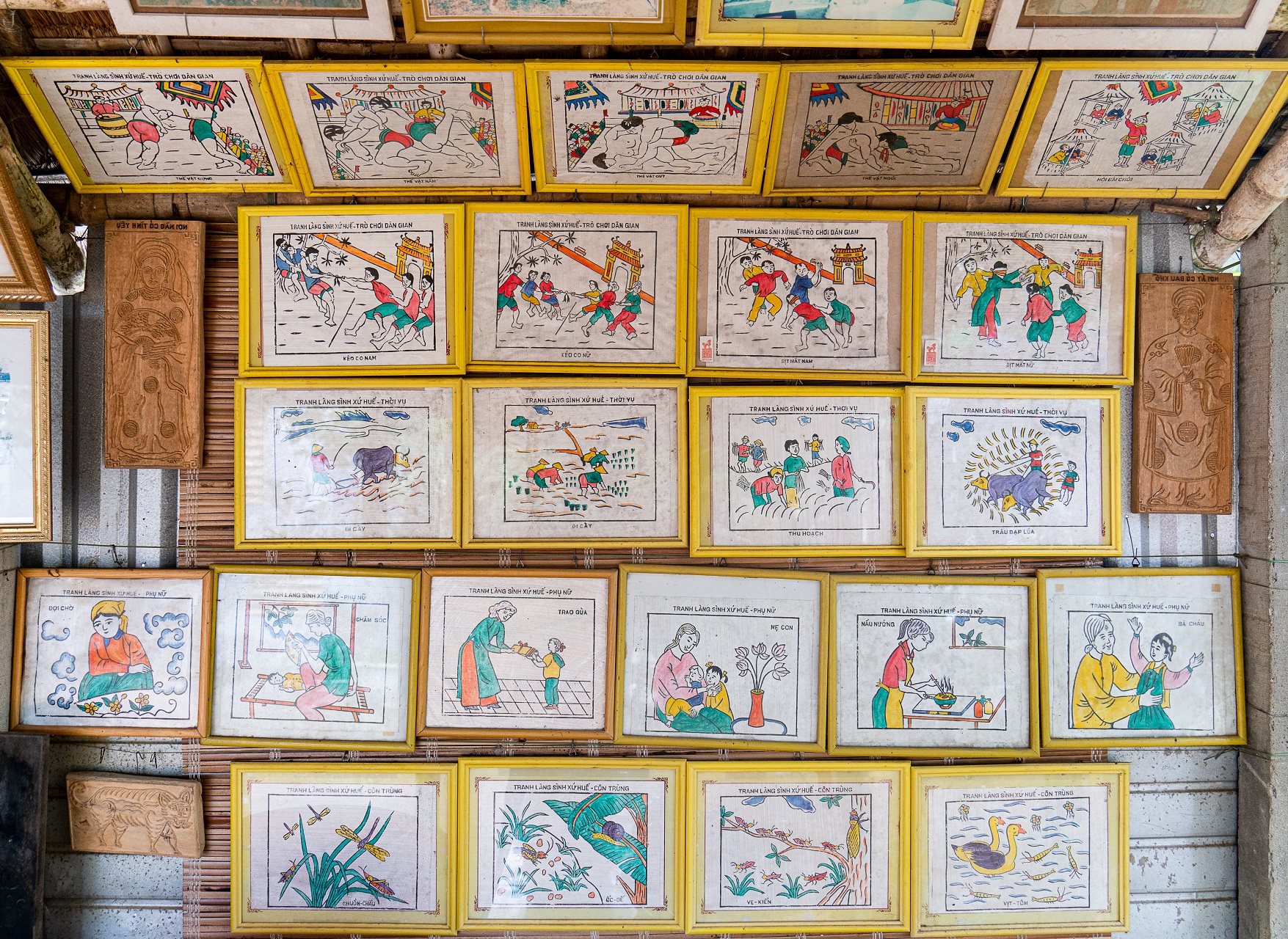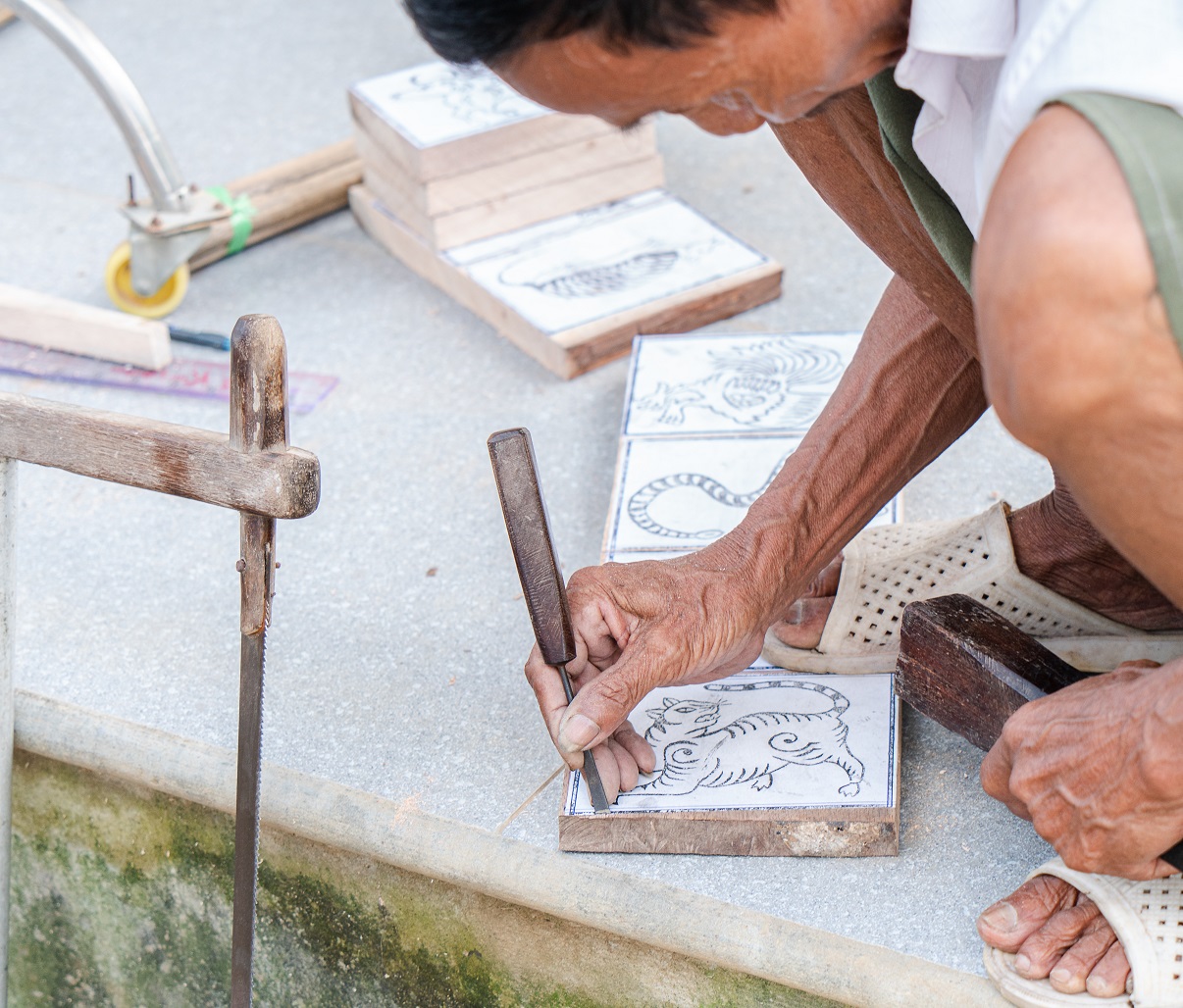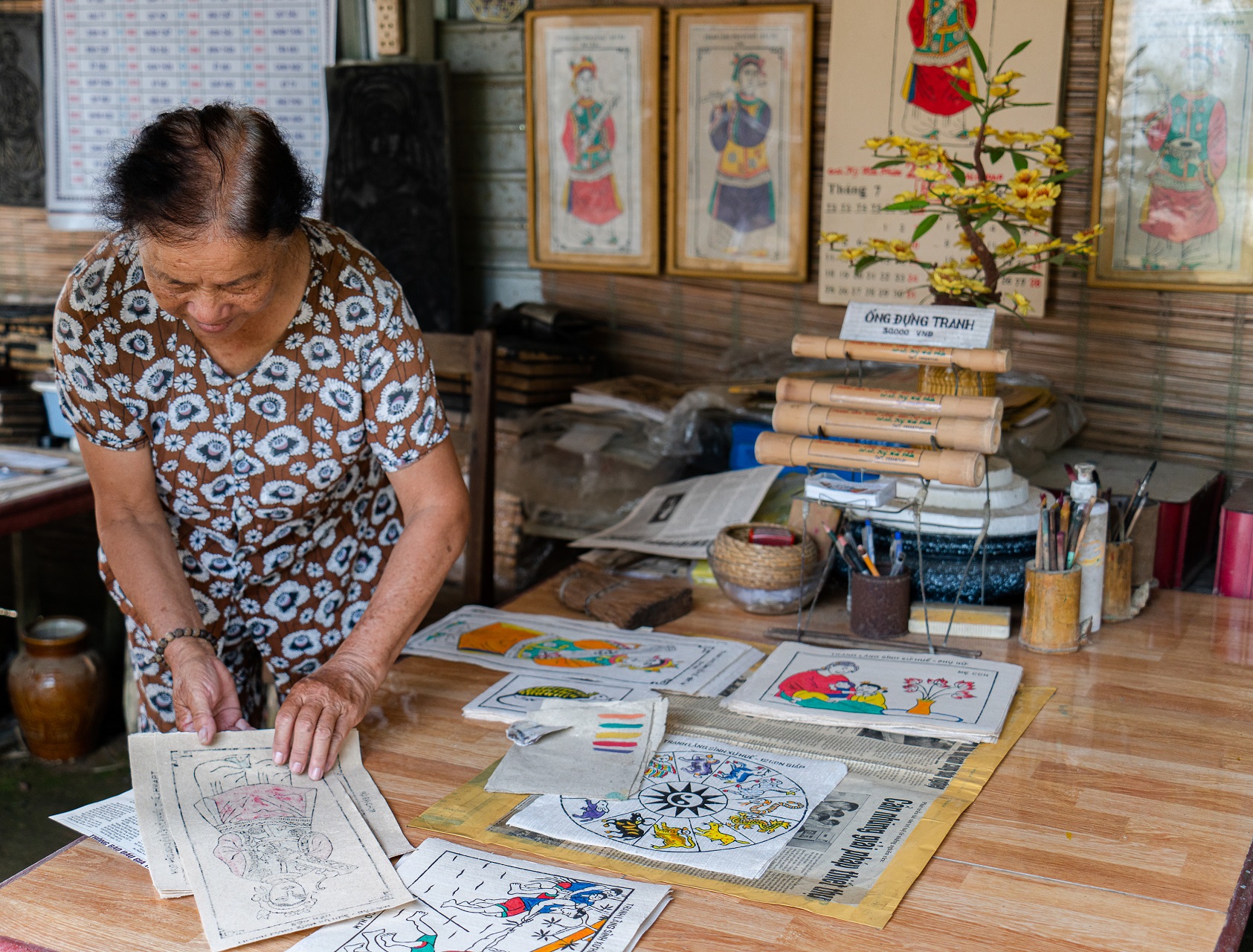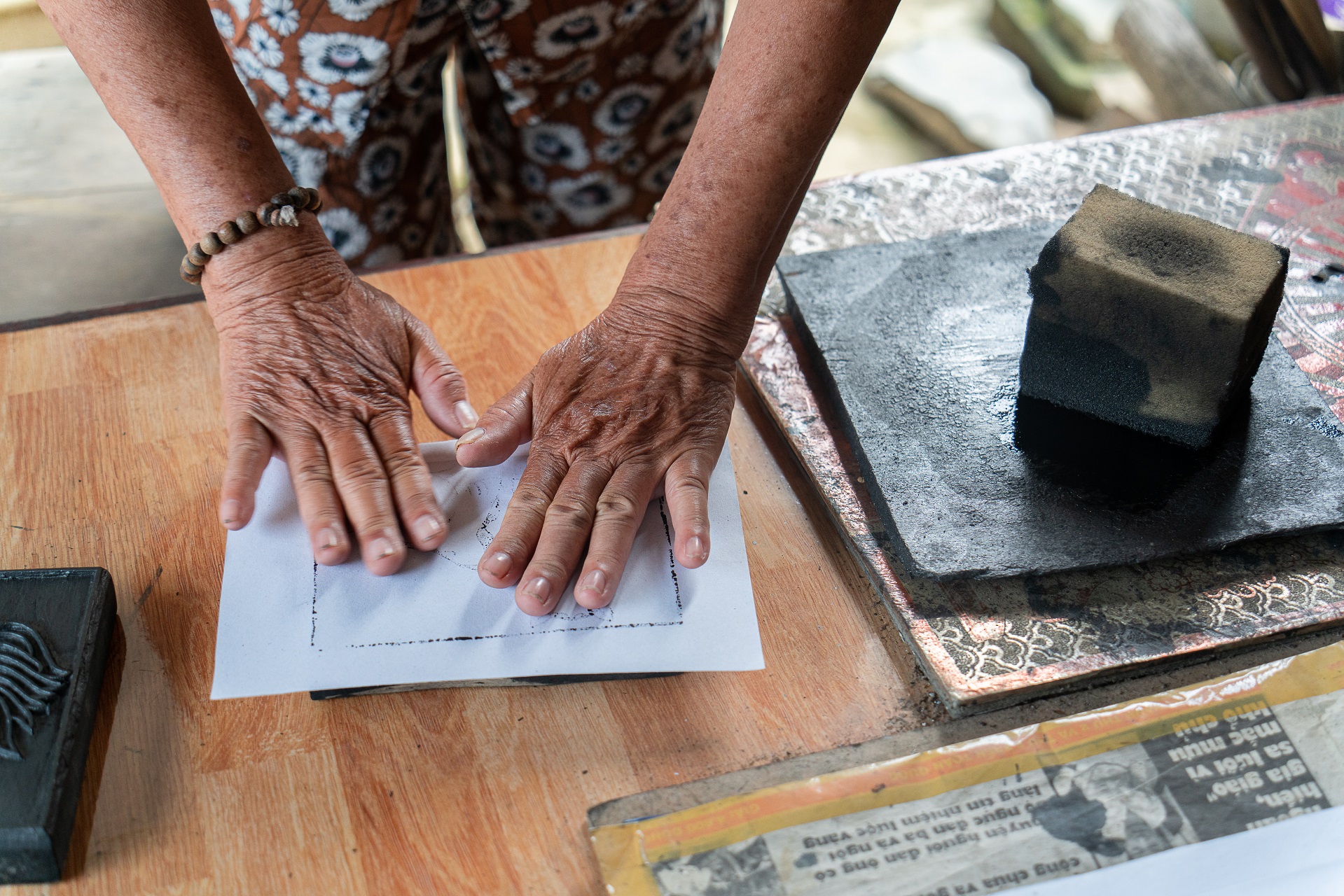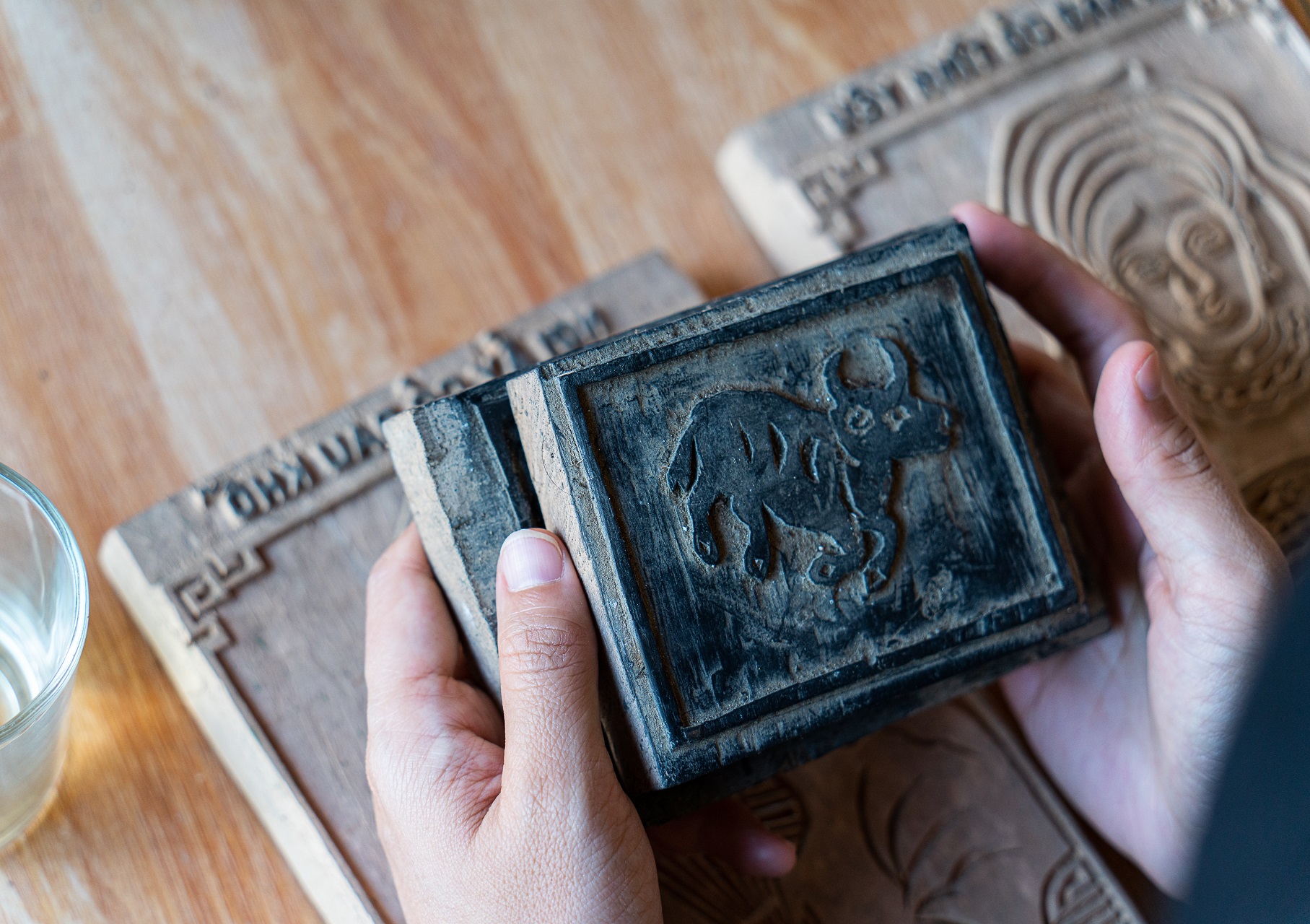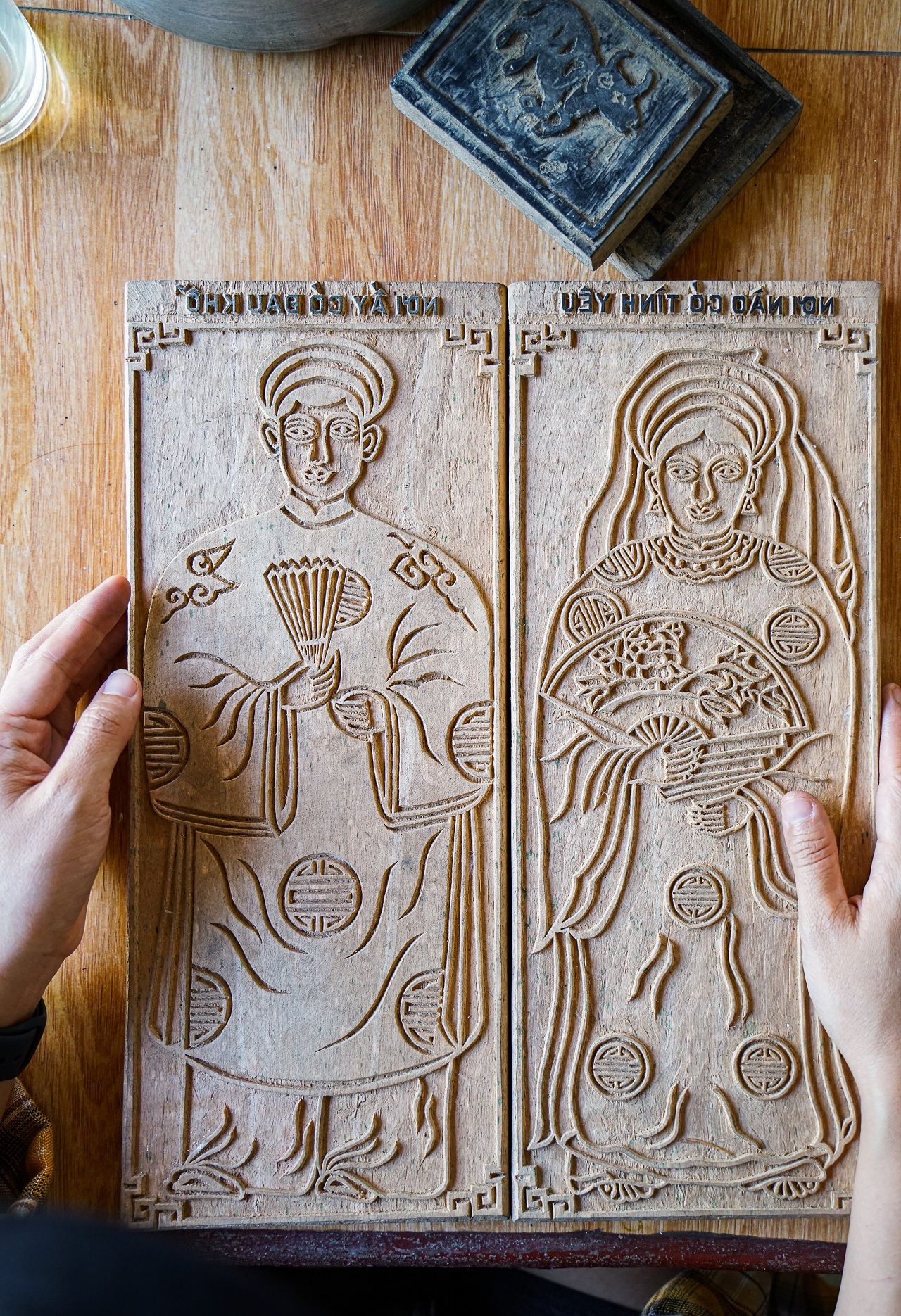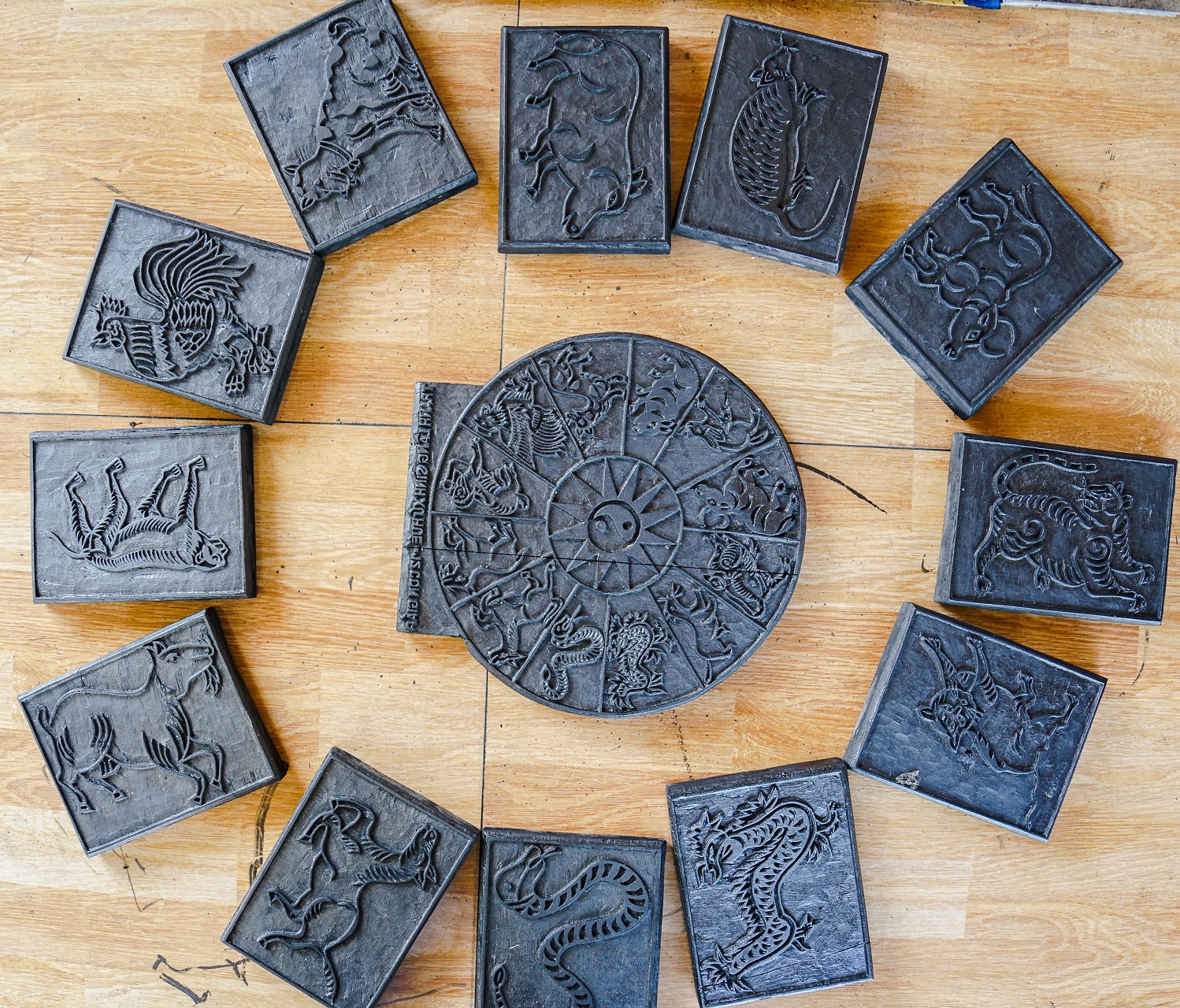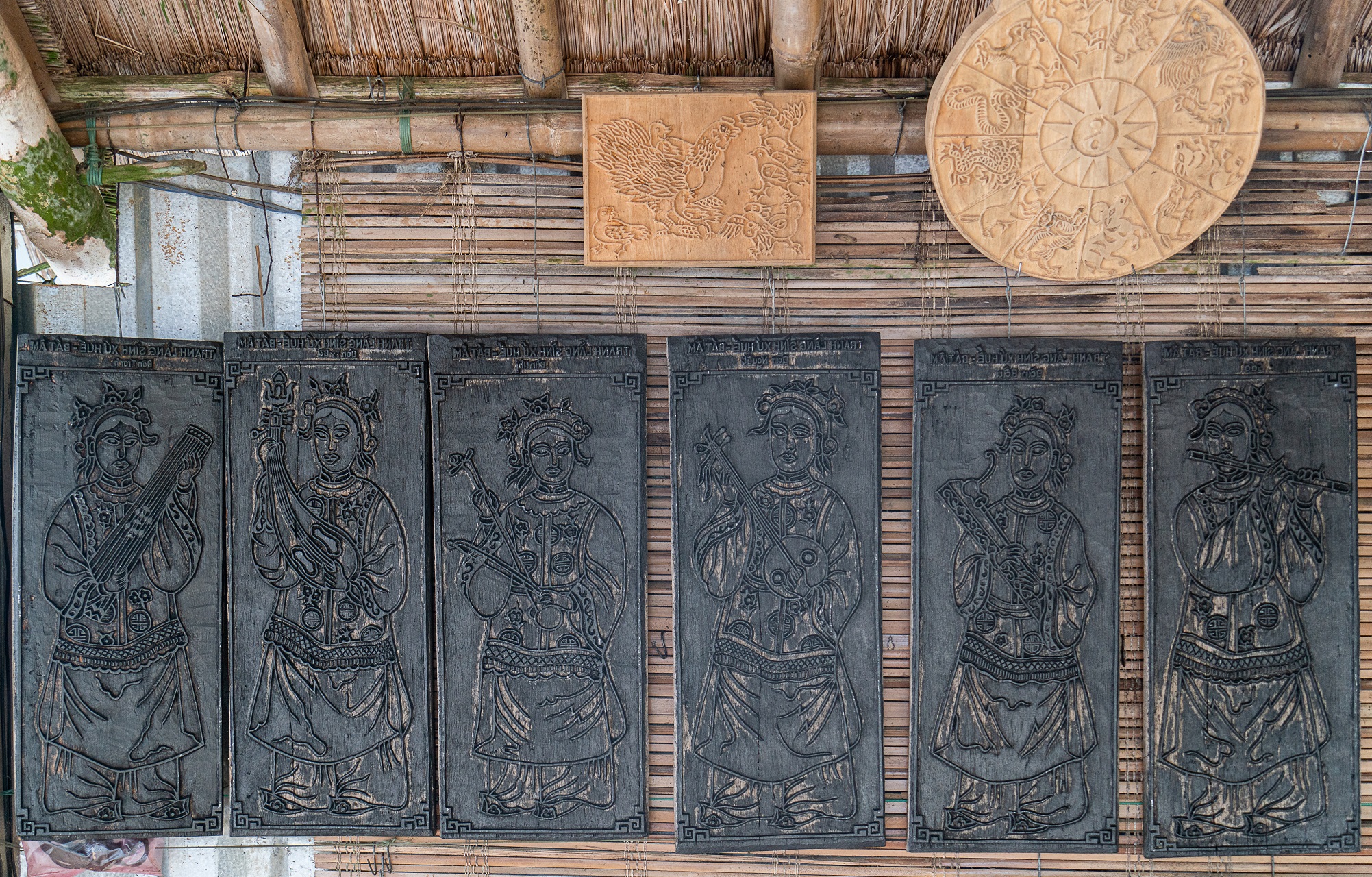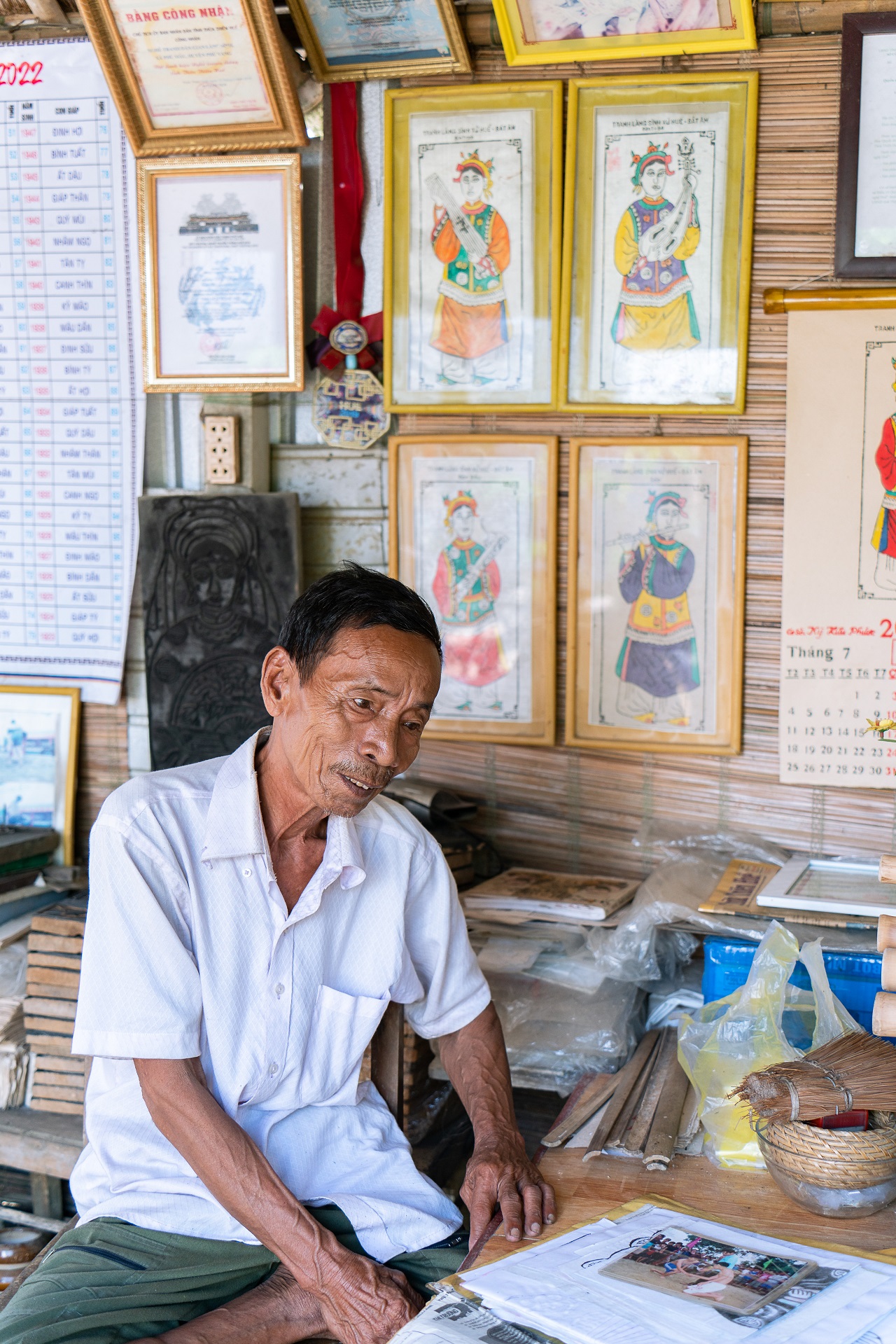Besides its history and nature, Thua Thien-Hue Province has become even more attractive to tourists thanks to its traditional craft villages, including the Sinh folk painting village.
Situated in Phu Mau Commune and some 10 kilometers east of the center of Hue City, Sinh Village is famous for folk paintings made for worshiping.
The village's woodblock paintings have been highly evaluated for their artistic and spiritual values.
There are seven steps to complete a painting -- cutting the paper, varnishing paper pieces with scallop shell powder, pressing paper on woodblocks, drying paper, mixing colors, coloring, and sanctifying.
Artisans will smear black ink on woodblocks and then put pieces of paper on the woodblocks to create raw paintings.
The paintings will be later dried before the artisans move to the next step: coloring.
Coloring is also the most difficult step, with colors made from natural materials and brushes made of wild pineapple roots.
|
|
| Woodblocks have different sizes and feature various topics. Photo: Nguyen Trung Au / Tuoi Tre |
|
|
| Artisans will smear black ink on woodblocks and then put pieces of paper on the woodblocks to create raw paintings. The paintings will be later dried before the artisans move to the next step: coloring. Photo: Nguyen Trung Au / Tuoi Tre |
The paper used for Sinh paintings is made from rhamnoneuron (Do trees) and is covered with scallop shell powder to make it durable and retain its color.
|
|
| A scallop shell, which is an important ingredient to make the paper used in Sinh Village’s paintings. The shells are bought from Tam Giang Lagoon, ground, mixed with rice flour, and smeared on pieces of paper. Photo: Nguyen Trung Au / Tuoi Tre |
Artisan Ky Huu Phuoc is one of those who have been painting in Sinh Village for a long time and contribute significantly to preserving the folk painting craft.
He is willing to share his job and teach visitors to make paintings themselves.
|
|
| Artisan Ky Huu Phuoc is a former student of Hue High School for the Gifted, the most well-known school in Thua Thien-Hue Province, Vietnam. Photo: Nguyen Trung Au / Tuoi Tre |
|
|
| Paintings featuring diversified topics, from animals, the life of locals to festivals and folk games, are displayed at the house of artisan Ky Huu Phuoc in Sinh Village, Hue City, Thua Thien-Hue Province, Vietnam. Photo: Nguyen Trung Au / Tuoi Tre |
“To preserve the Sinh folk painting craft, it’s better to spread it to many people,” he explained.
“Having welcomed guests to experience making folk paintings over the past 10 years, [I’ve seen] many people were interested in and highly evaluated the job."
|
|
| Artisan Ky Huu Phuoc creates a woodblock, using simple tools. He said the job requires artisans to be skillful to create woodblocks which can be handed down to future generations. Photo: Nguyen Trung Au / Tuoi Tre |
|
|
| Tran Thi Gai, wife of artisan Ky Huu Phuoc, introduces paintings of Sinh Village to tourists. Photo: Nguyen Trung Au / Tuoi Tre |
|
|
| She presses a piece of paper on a woodblock smeared with black ink to create a raw painting. Photo: Nguyen Trung Au / Tuoi Tre |
|
|
| Woodblocks seem simple but will help create special paintings. Photo: Nguyen Trung Au / Tuoi Tre |
|
|
| Woodblocks are often made of jackfruit tree trunks. Photo: Nguyen Trung Au / Tuoi Tre |
|
|
| A set of woodblocks featuring 12 Zodiac signs. Photo: Nguyen Trung Au / Tuoi Tre |
|
|
| A set of woodblocks about Bat Am which feature figurines playing eight different musical instruments often used in festivals and events. Photo: Nguyen Trung Au / Tuoi Tre |
|
|
| Artisan Ky Huu Phuoc. Photo: Nguyen Trung Au / Tuoi Tre |
Like us on Facebook or follow us on Twitter to get the latest news about Vietnam!



